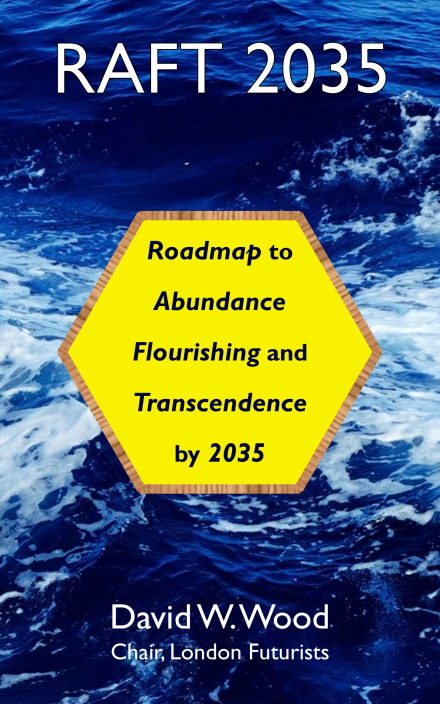An extract from Chapter 13 of the book Transcending Politics:
13. Politics and leadership
Chiselled in gold letters on a granite monument in Highgate Cemetery, North London, one of the most famous sayings of Karl Marx echoes from beyond the grave:
The philosophers have only interpreted the world in various ways. The point is to change it.
The preceding chapters of this book contain their fair share of interpretation. But what next? If someone is at least broadly sympathetic to the technoprogressive vision I have outlined, and would like to hasten the accomplishment of that vision, what steps should they take?
The suggestions I make in this final chapter belong under three headings: connect, act, and iterate:
- Connect – find and join communities of people whose goals and projects resonate with you, and where your own efforts can be meaningfully amplified
- Act – identify useful individual tasks where you can make a difference, and become involved
- Iterate – be ready to start small, to venture outside of your comfort zone, to set and respect deadlines by when you will review progress with community members, to learn from both the failures and successes you experience, and to repeat the whole process, again and again, gaining more and more insight and effectiveness.
A simple way to move forwards, on all three of these headings, is to visit the Transpolitica projects webpage, transpolitica.org/projects, find something on that page that appeals to you, get started, and reconnect regularly.
Alternatively, you may prefer to become involved in projects taking place outside the Transpolitica umbrella. I give many examples in the Afterword that follows this chapter.
This chapter also contains some recommendations on how to connect, act, and iterate in more effective ways – ways that benefit from technoprogressive technologies and culture. At the same time, I fill in a few gaps left over from discussions in earlier chapters.
Towards super-collaboration
Of the many sets of technology that I’ve mentioned in this book, perhaps the most important is collabtech – technology that will improve our ability to collaborate with one another.
With the right kind of collaboration, the different skills and insights that are possessed by people around the world can add up to an extraordinary technoprogressive force. Many hands will make light work. But in the absence of such collaboration, people will talk past each other, waste time and resources re-inventing wheels, find unnecessary fault in each other’s ideas, become absorbed in fruitless arguments, and generally go round in circles. Too many cooks will spoil the broth. Civilisation will burn while we all gesticulate from the sidelines.
Let’s take a closer look at the components of collabtech. Various information processing tools that can enhance collaboration include:
<snip>

